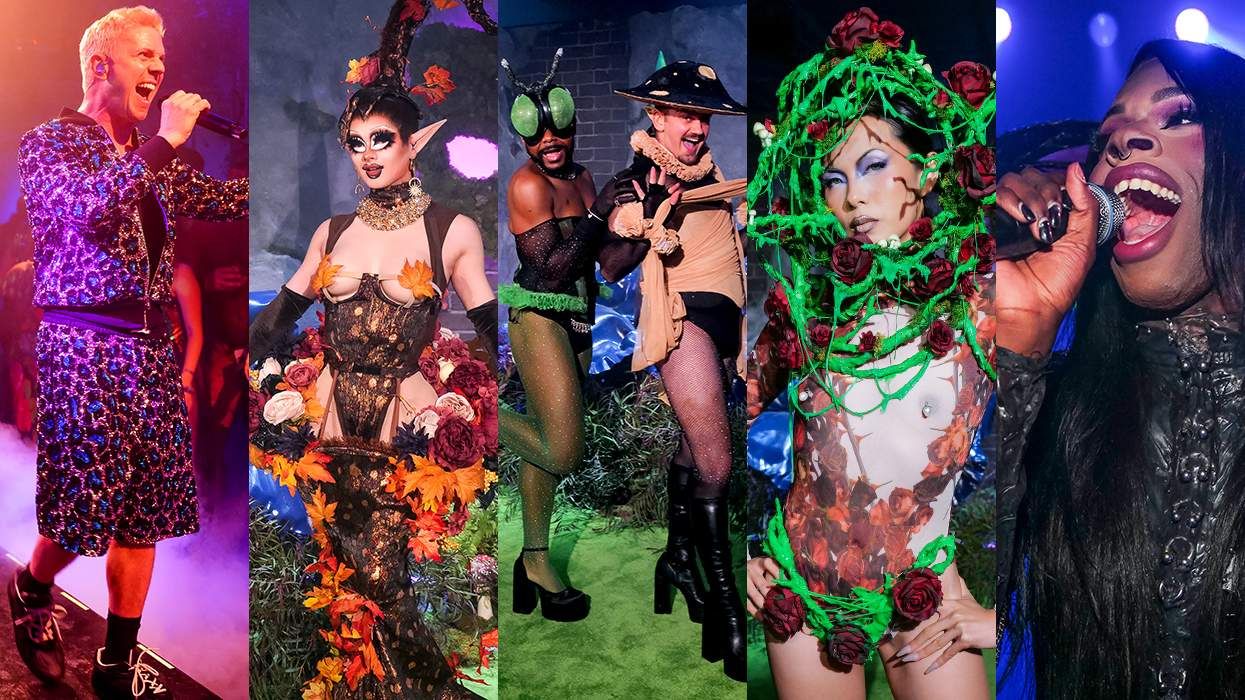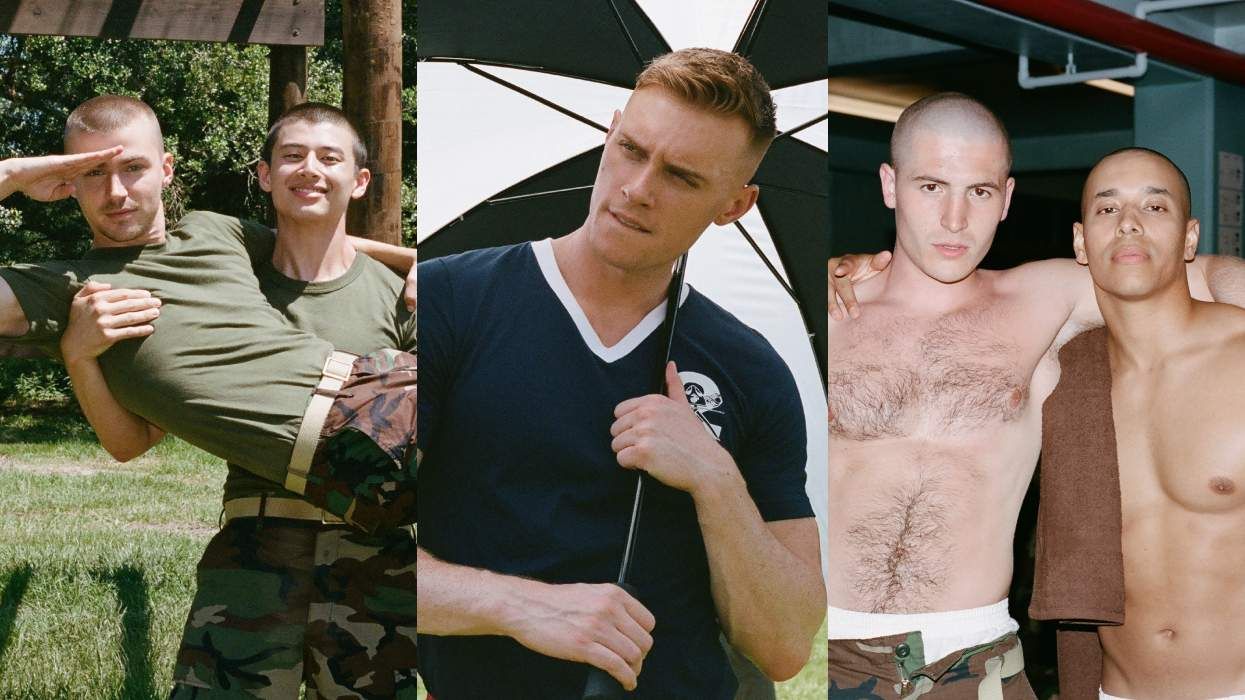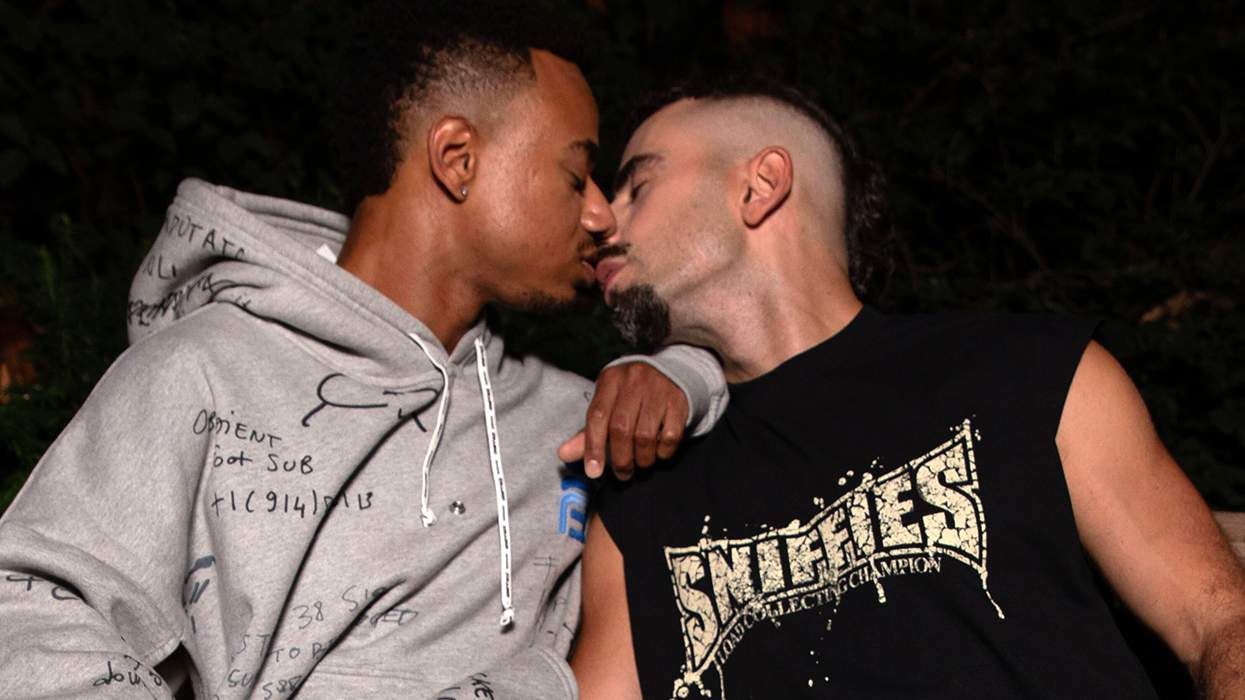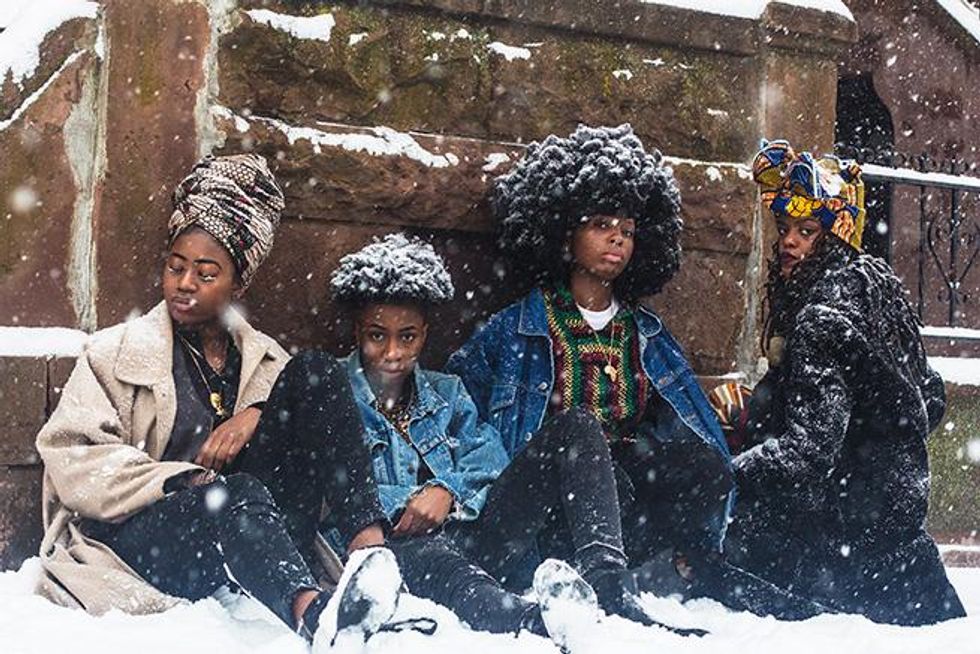
When Mikael Owunna was 15 years old, he decided it was time to come out. It was 2005 and National Coming Out Day was fast approaching, so he timed the news for the same date, planning to use everyone's favorite social media platform of yesteryear, Myspace, to get the job done. Fourteen years later, October 11 will have another unique place in his heart as the day his book, Limitless Africans, publishes.
"It's almost this kind of coming back to and meeting my 15-year-old self again who came out around that day and being like, 'Look how far we've come,'" he told Out. "I wanted to have that echo, a personal echo for me to come to terms with the journey that I've been on in terms of accepting my own sexuality."
Photo Caption: 4 Queer African Women, Brooklyn, NY 2017
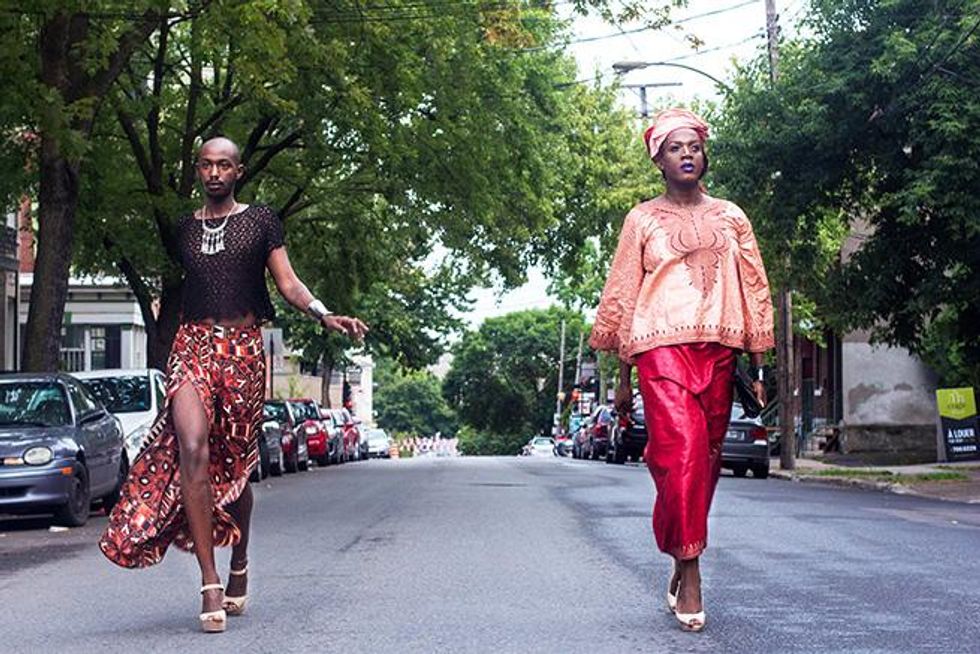
A visual artist of Nigerian and Swedish ancestry, Owunna's art is all about "creating images that are portals to other universes," he said. "And in these universes, Black, queer, indigenous people, trans people are free and whole individuals. It's about creating these visions of alternative universes and other worlds where we are full and complete individuals." He's doing just that with Limitless Africans, a collection of photos and interviews of 30 LGBTQ+ Africans across the diaspora. Over four years, he traveled to 10 countries across North America, Europe, and the Caribbean to document the LGBTQ+ African immigrant experience.
Ahead of the book's release, the finalist for the 2019 FotoEvidence Book Award with World Press Photo spoke to Out about coming out and finding photography, combating long-held beliefs that to be LGBTQ+ is anti-African, and why the text of the book is printed in both English and French.
Photo Caption: Alicia, Montreal, Canada 2016 (Right)
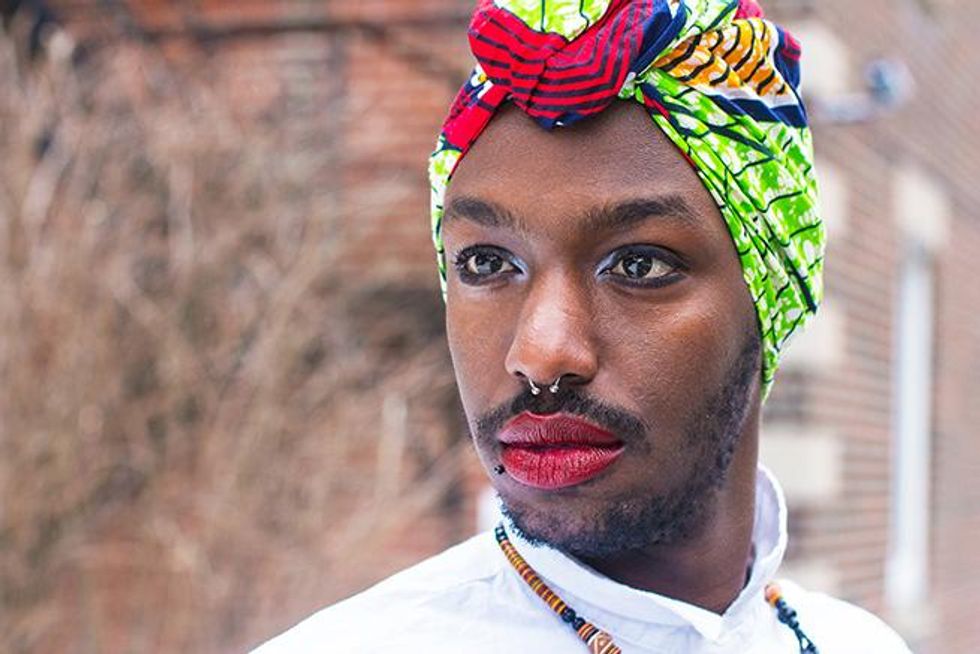
How did you come to the idea and the inspiration behind Limitless Africans?
It was inspired by my own personal experience. I am queer. My family is Nigerian and Swedish, but I grew up here in the U.S. Particularly between my queer identity and my Nigerian identity, I felt a lot of tension there. I didn't feel like I could be both queer and African, and this is something that I was also told by my family. I was outed as a teenager and I was told, "This is not our culture. Being gay comes from white people. This is unacceptable." When I was 18 during a family trip to Nigeria, I was put through a series of exorcisms due to my sexuality. Dealing with the trauma of that experience and that feeling of not belonging anywhere, I found photography a few months later. And so photography became my voice when I felt really voiceless.
Photo Caption: Brian, Montreal, Canada 2016
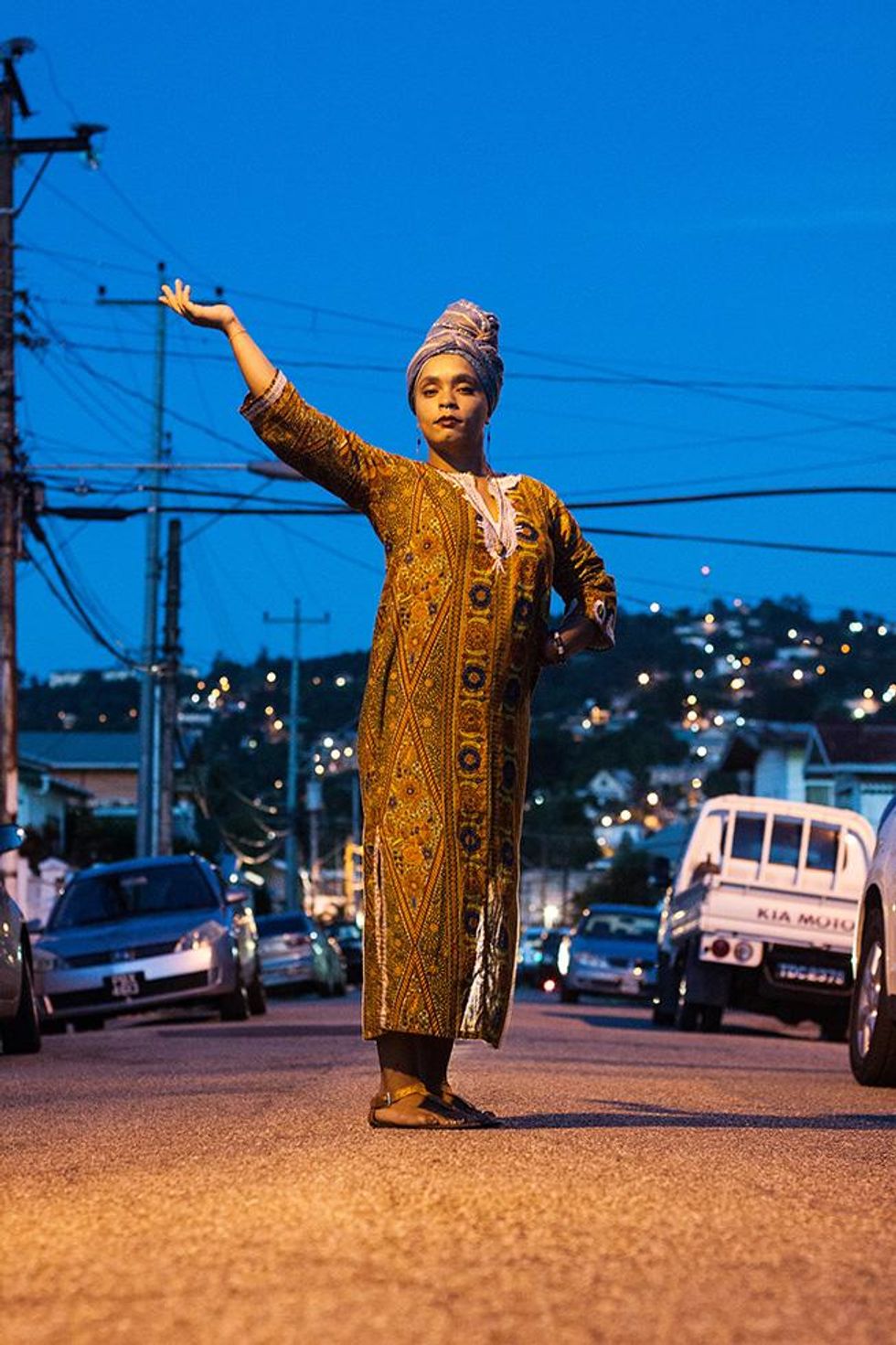
I kept doing photography, and after a few years, I kept coming back to this tension. I moved back home, and I was feeling that same sense that I wasn't a valid and full individual. And so I became really curious to understand how do other people who inhabit these intersections of identities; being queer and African and immigrants, how do they navigate these questions? And so at that point, I began the series and the project -- this was six years ago -- interviewing and photographing LGBTQ+ African immigrants to see how did they overcome this idea that it's un-African to be gay or transgender.
Photo Caption: Carol, Port of Spain, Trinidad & Tobago 2015
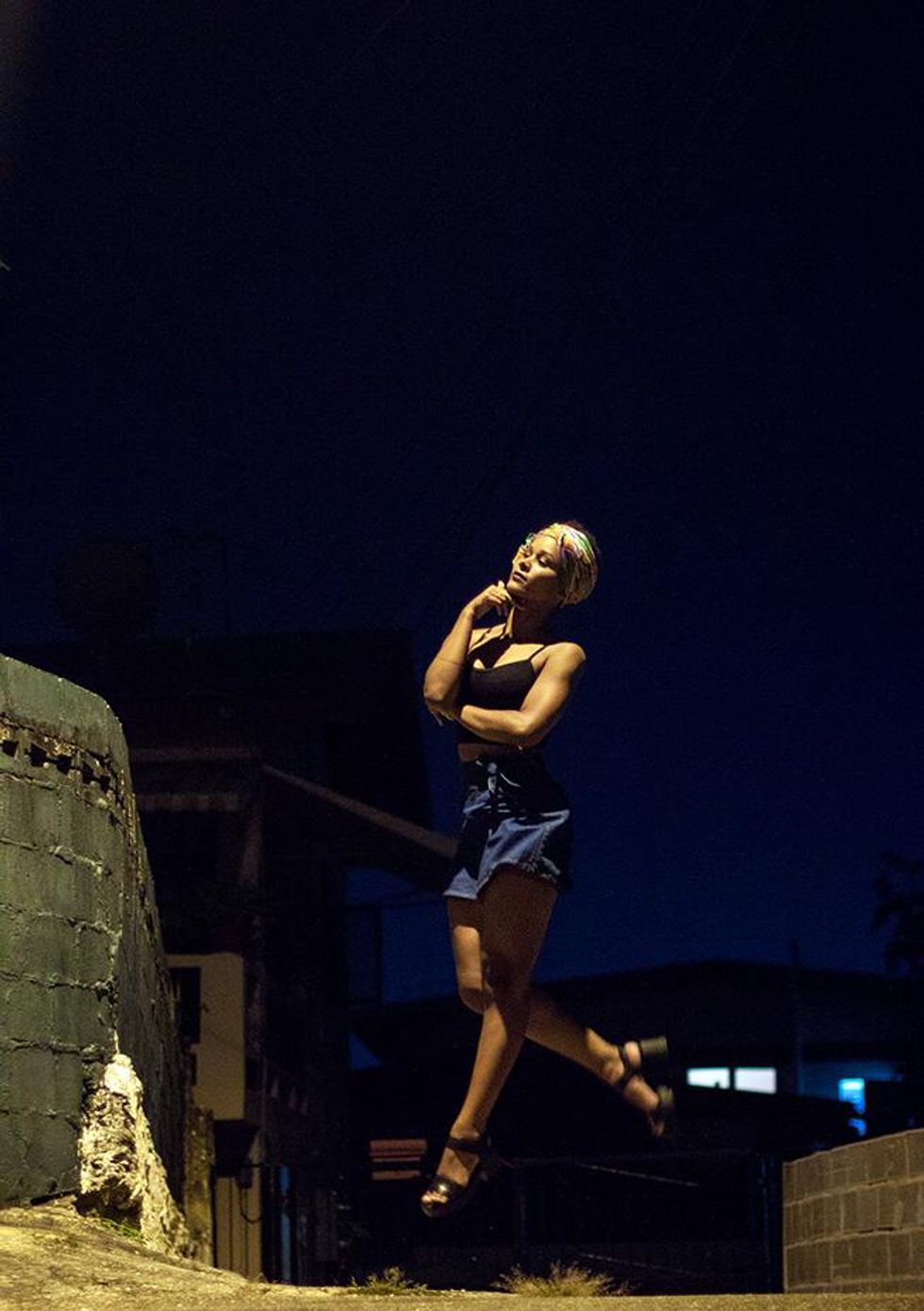
What exactly is the significance of the title, Limitless Africans?
Before, the title was "Limit(less) Africans." The reason I had that was because it was a question mark. It was the idea that there are all of these limits that are placed on us and our lives based off of just who we are: Black, immigrant, queer, transgender. So I was asking myself a question: "Despite all of these limits that society is trying to put on us, is it possible for us to be limitless within ourselves by crafting and creating, cultivating these spaces of self love?" The parentheses were really a question mark like, "Is it possible for us to be limitless despite what society is trying to impose upon us?" As I completed the project, it became an affirmation, so that's when I dropped the parentheses. So the actual title of the book is just Limitless Africans, but it was an evolution, really, for me in terms of really trying to step into who I was being, both queer and Nigerian.
Photo Caption: Gesiye, Port of Spain, Trinidad & Tobago 2015
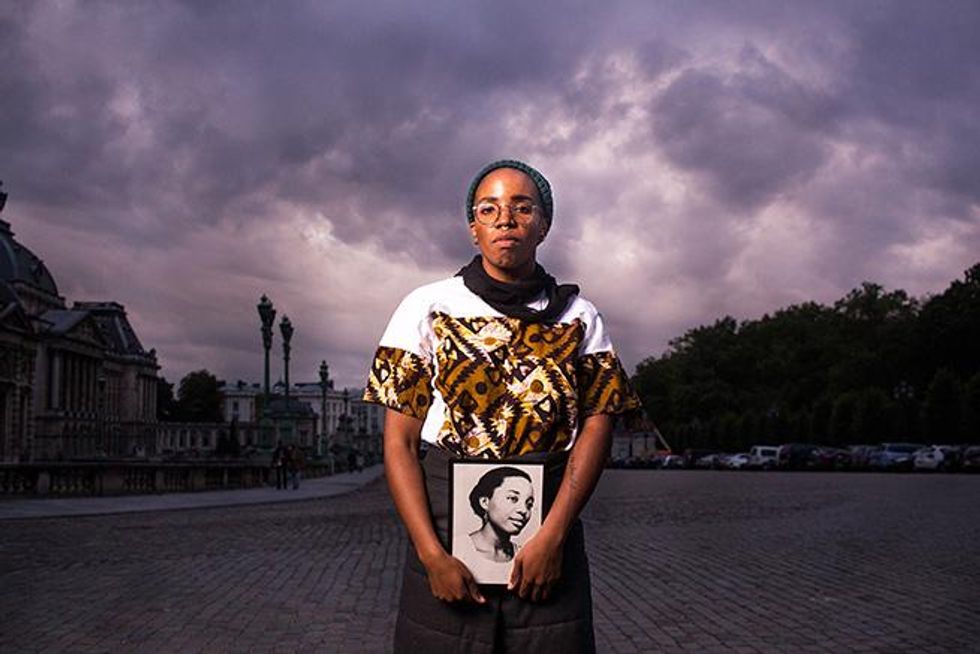
Throughout the book, you've included Nsibidi, a written script of sorts indigenous to what is now southeastern Nigeria. Talk to me about the importance of incorporating that language component into the book.
During college I double majored in biomedical engineering and history, so I was really curious to understand that historical component also. When I was hearing, "This is not our culture. There aren't gay people in Nigeria." I took that as a historical question. And so I did a lot of historical research trying to learn about precolonial sexuality and gender on the African continent and specifically within a Nigerian context. I found dozens of examples, clearly. Part of that research I found that there was a precolonial writing system in Southeastern Nigeria, which is where my family's from. And I didn't know that we had a writing script. So I became really curious to learn more and just delving into the writing system, I found that there was a symbol, which is the cover of the book, which represents two women lying in bed together holding each other. I'm like, "Well, they're saying that this doesn't exist, but literally our precolonial writing system right here is showing that there was same-sex affection." It was a part of the writing system. It was a part of the culture. It was accepted. So I wanted to incorporate these precolonial symbols into the work to not only reify the fact that we've always existed as queer African people, but also to place contemporary queer and trans African people within an African cosmological framework.
Photo Caption: Po, Brussels, Belgium 2017
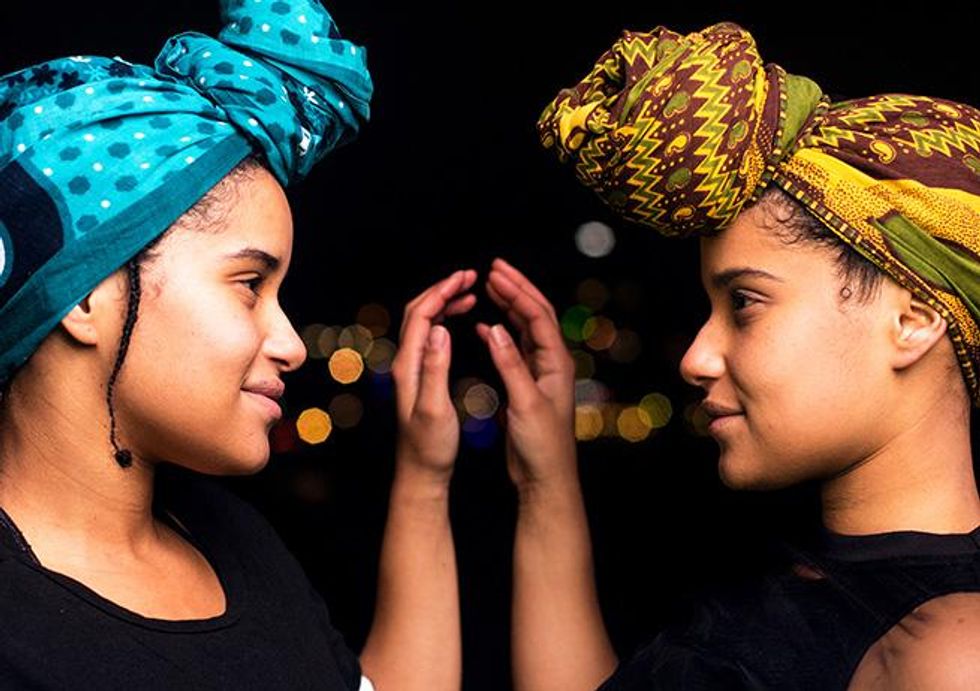
Just as I'm really trying to focus the work around debunking the idea that it's un-African to be LGBTQ+, I wanted to then also metaphysically place all these LGBTQ+ African immigrant narratives within this framework that was grounded with this symbology from our precolonial ancestors. So this is really creating this loop where we are all connected and have been connected to our queer and trans forebears.
Photo Caption: Queer Kenyan Twins, Hamburg, Germany 2017
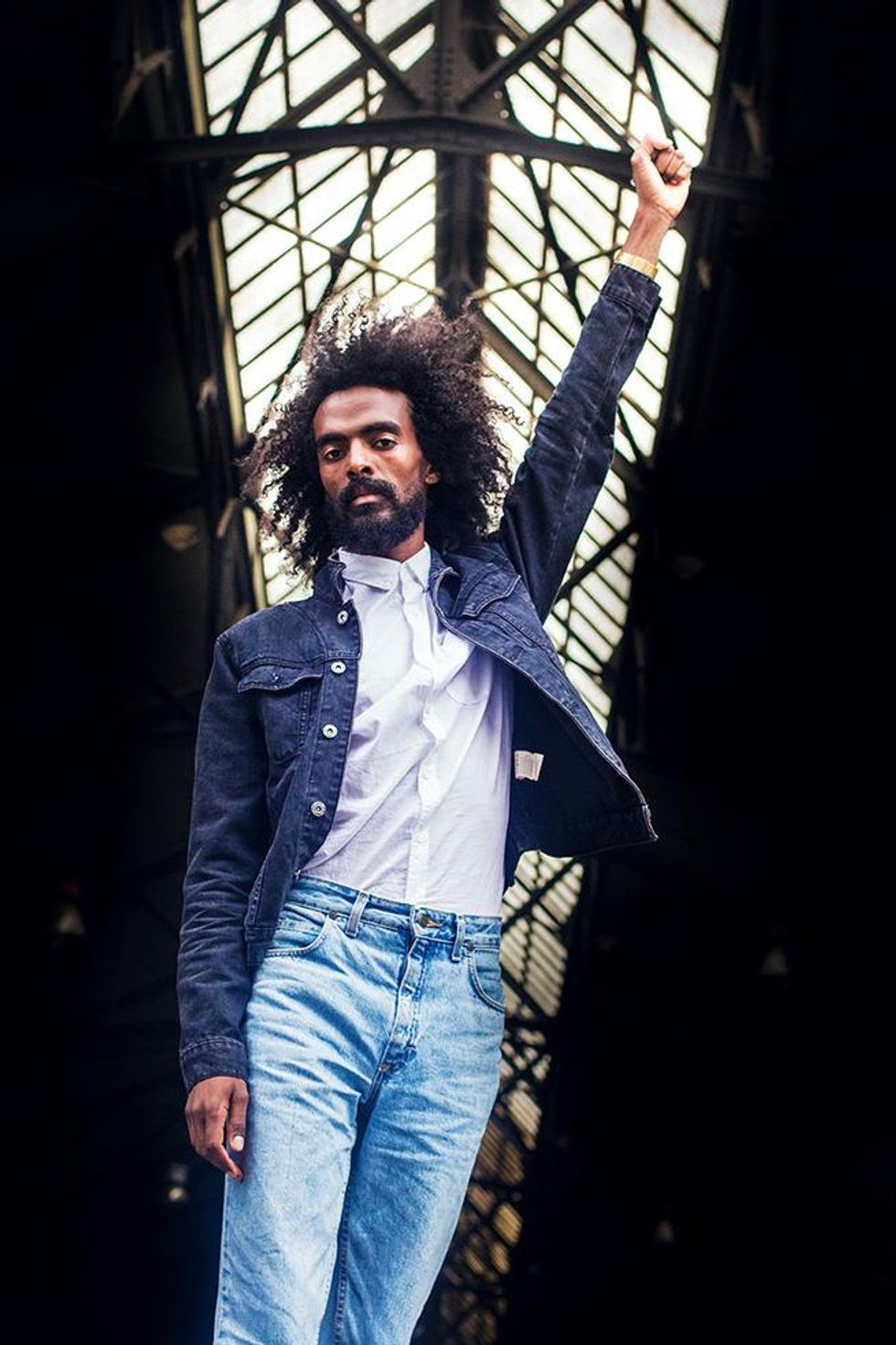
In the introduction of the book, you have these two short pieces written by Zun Lee and Rafeeat Aliyu. They both kind of speak to this whole un-African idea that you just mentioned. A line that stuck out to me says that "the opposite of invisibility is not visibility, it's belonging." In what ways do you think this project, this collection of images, can make people feel like they belong?
When I was growing up, I didn't know any other queer or trans African people. So there was this sense of isolation that I had. When I was creating this body of work, a big part of it was finding and building community, trying to find other people who had similar experiences. And when you find people where there's common ground in that way, I think there's a sense of belonging that's very intangible. I think when you've grown up with no mirrors of yourself in society, there's a sense of lacking, and particularly when the society's saying that you can't exist.
Photo Caption: Samuel, Stockholm, Sweden 2016
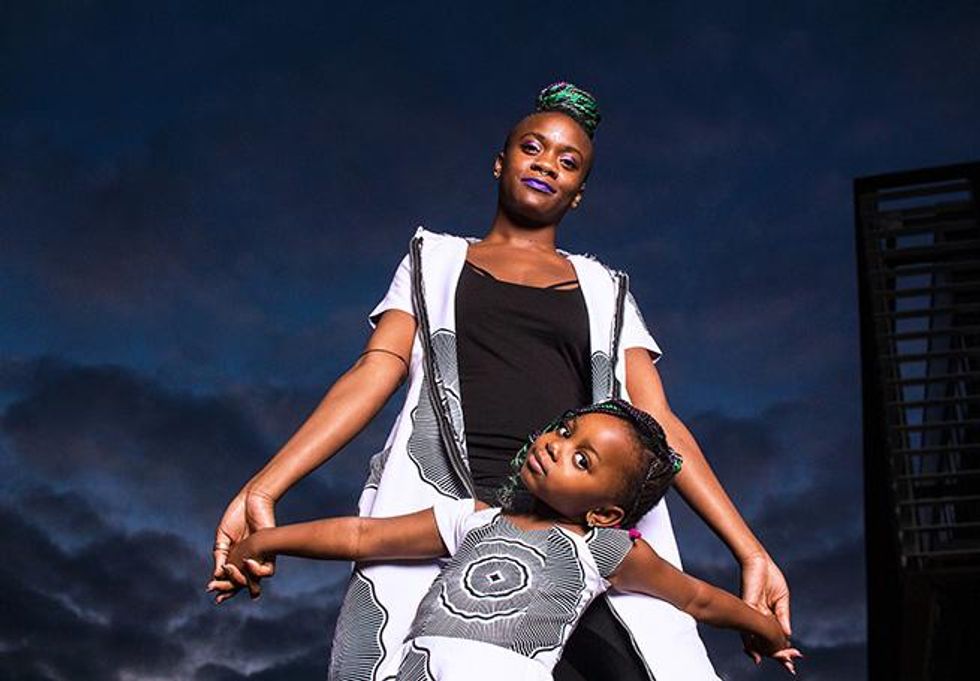
So building that community through shooting the work and then pulling the narratives together in this collection was how I found my own sense of belonging as a queer African immigrant. And so hoping that that can then also gravitate upward and share that feeling with other people, too, to know that not only, yes, do queer and trans Africans exist, but that there are dozens of us that are located in 10 different countries across the world. And that's just the tip of the iceberg. There's that sense of community and belonging that we then generate by sharing it in such a transnational context.
Photo Caption: Tobi and Gabrielle, Essex, the United Kingdom 2017
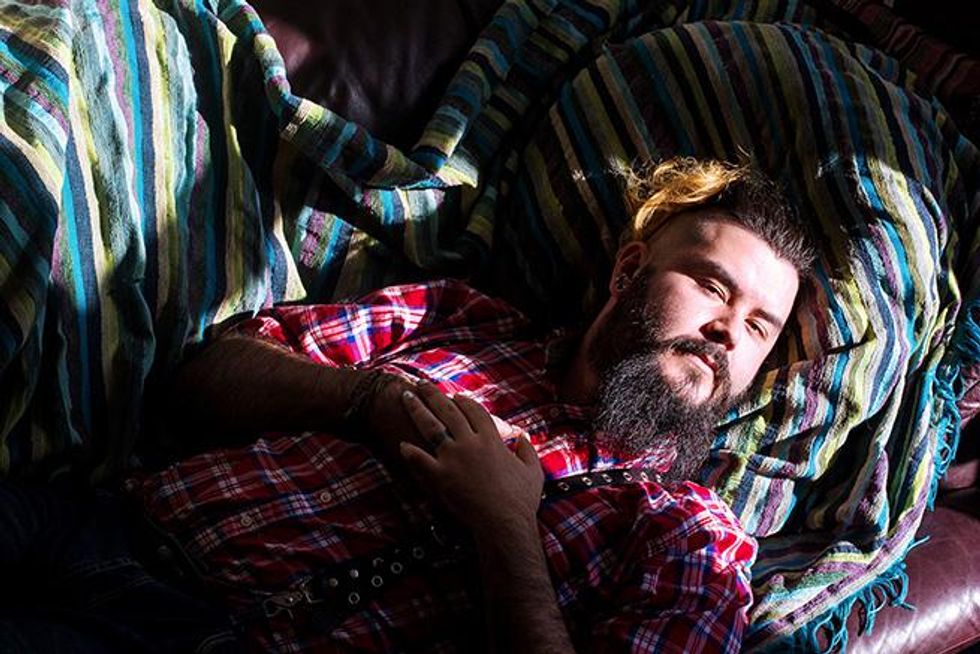
The different blurbs that are written for each of the folks that are featured are published in English and French. Why did you want to have both of those languages, in particular, present?
French was a really big part of my own journey, too. Actually, over the course of the project, I also learned French. And it was because of the narratives that I was working on, particularly with people from Sub-Saharan Africa, about half of them were francophones and were French speakers. In terms of actually how the colonial rule and governments worked on the African continent, there are many, many countries that are French speaking. And so I wanted to have the French language in there to grant language access to queer and trans Africans who aren't anglophone because on the African continent there are over 100 million French speakers. I wanted to make sure that they could also access these stories.
Photo Caption: Yahya, Philadelphia, PA, USA 2016
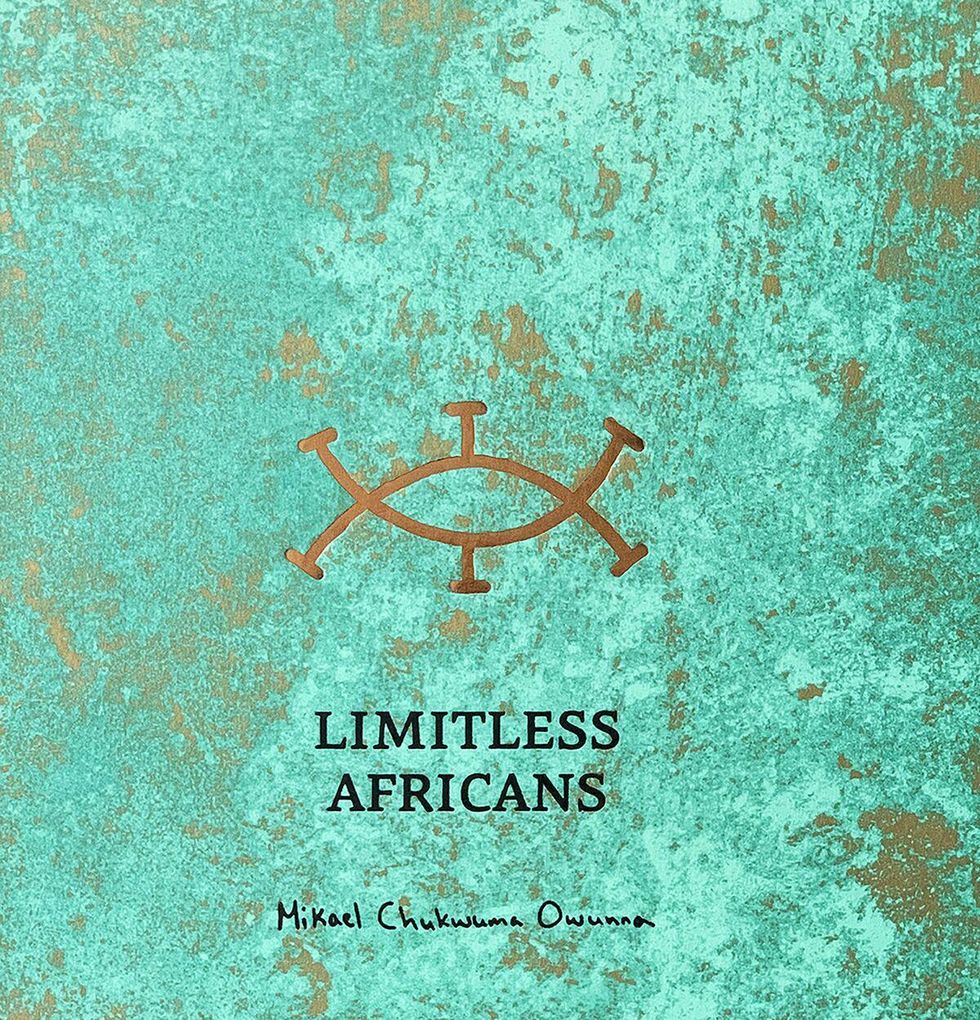
And then with the cover, you spoke about the text, but what about the actual design?
The green and gold on the cover is meant to evoke bronze relics from West African metallurgy traditions. I was thinking about the idea, particularly within an Igbo context, where we had a really powerful bronze metallurgy tradition around the 800s, 900s AD that were lost. And they were just rediscovered in the 20th century. And when they were, they were covered in all of this patina, but then they also had some of that original bronze shining through. And so I wanted to evoke the idea that despite the fact that a lot of our traditions and understandings of sexuality and gender have been buried for centuries in an African context, that we're now bringing them to light and rediscovering them.
Editor's Note: All images are copyright Mikael Owunna from the book Limitless Africans published by FotoEvidence on October 11, National Coming Out Day.








